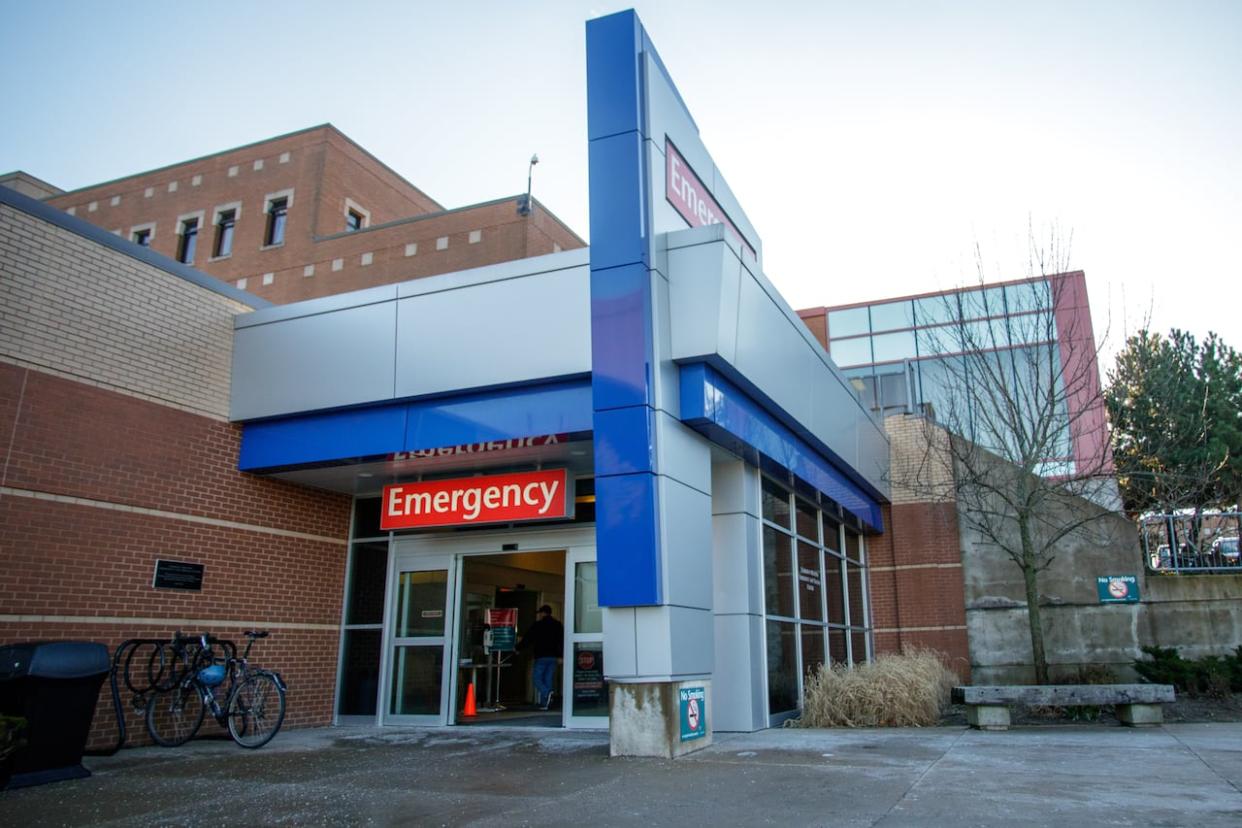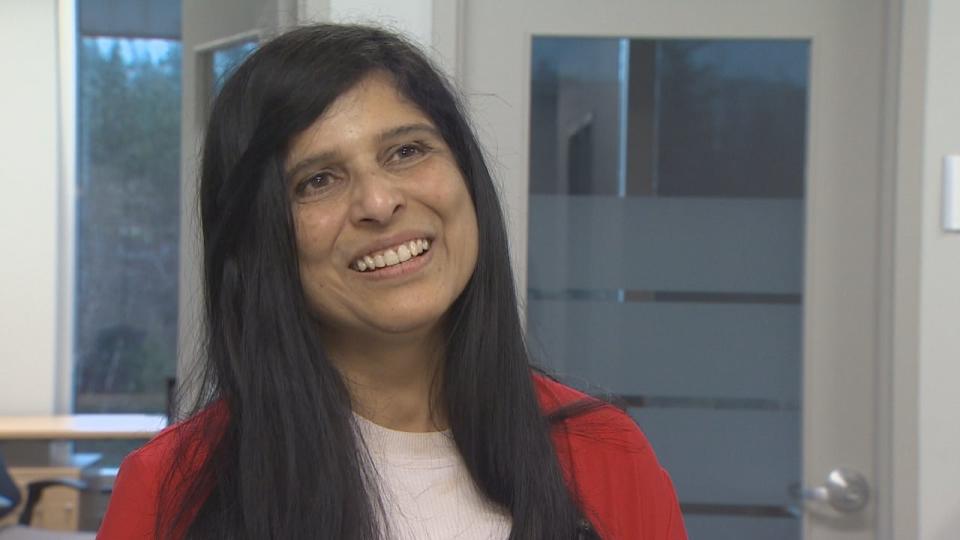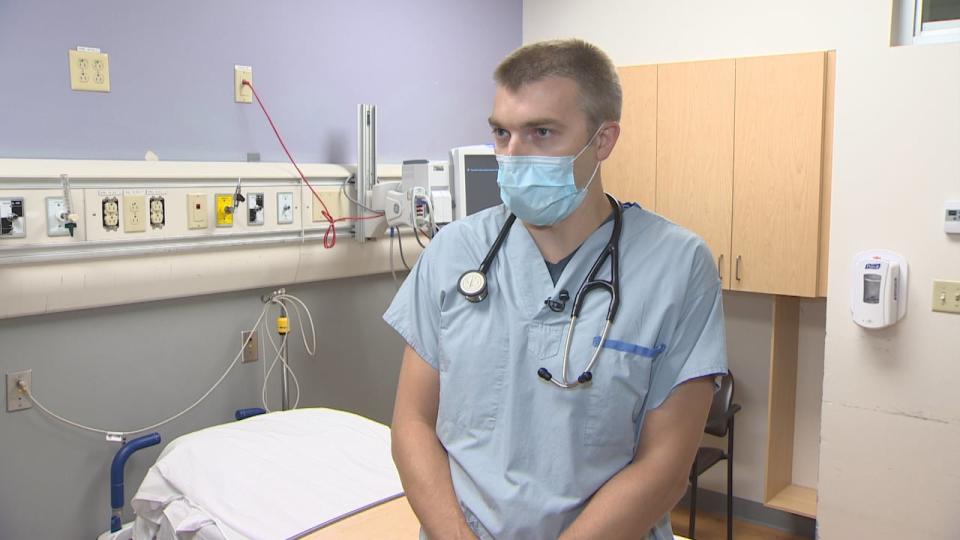Patients tapping into alternative care options, but N.S. emergency departments still face challenges

More Nova Scotians than ever are arriving at hospital emergency departments with conditions rated in the most serious categories, a development experts say is highlighting how the health-care system is changing.
Officials say it indicates two diverging trends. The province has a large population of aging patients with complex, chronic illnesses who may avoid hospital until they are in dire condition. And other patients who are less ill are finding alternatives, including online appointments or talking to a pharmacist, rather than visiting an emergency department.
When a patient presents at an emergency department, they're screened and assigned a triage level between one and five, with triage scores of one and two considered the sickest patients and four and five considered less serious conditions that, in theory, could be treated elsewhere.
Numbers from Nova Scotia Health last month show that, through September, the percentage of people at emergency departments with triage scores one and two has increased every year since 2016.
Conversely, the percentage of patients with triage scores four and five has declined each year since 2016, with a notable drop in the last year.
"I don't think it was ever really an issue of trying to convince folks not to come to an emergency department," Dr. Matthew Clarke said during a recent interview at the Halifax Infirmary. He is an emergency room doctor and associate chief medical information officer at the Nova Scotia Health Authority.
"I just think there really weren't other options. I think we've created capacity in other avenues."
More than 146,000 people in the province are without a primary care provider and it's become common for people to spend hours at an emergency department waiting to see someone because there was nowhere else for them to get care, no matter how minor their need.
The provincial government has attempted to change that in recent years with expanded access to virtual care and the creation of mobile primary care clinics that visit communities around the province and primary-care clinics in pharmacies using pharmacists.
Tara Sampalli, a senior scientific director with Nova Scotia Health, said people with mild conditions could often get the treatment they need from primary care, if they had access.

Tara Sampalli, senior scientific director of research, innovation and discovery with the Nova Scotia Health Authority, says a growing number of people are tapping into alternative care options that keep them from having to seek care at an emergency department. (Patrick Callaghan/CBC)
With the number of people using virtual care and clinic options rising by the thousands, Sampalli said these new avenues seem to be accomplishing the goal of giving those patients a path to care somewhere other than the emergency department. People who use them are asked what they'd have done if virtual care or the mobile and pharmacy clinics were not available.
"And many people — over 50 per cent — [say] they would have gone to the emergency department in their local community," Sampalli said in a recent interview.
Along with these new options, Clarke thinks there are additional reasons to explain the growing percentage of patients with more acute triage scores.
He and his colleagues are seeing an increase in the number of complex patients with multiple chronic conditions, said Clarke.
"Things like pneumonia, COVID, influenza, they can present much more ill."
Hospital bed availability an ongoing problem
Other factors can include the growing number of people in Nova Scotia older than 65 and people concerned about the wait they might face in an emergency department putting off going until they become sicker, said Clarke.
Regardless, the change in who is arriving at emergency departments comes with its own challenges as staff continue to confront one of the biggest problems in the health-care system: a lack of available in-patient beds.
Information the Nova Scotia NDP recently received through an access to information request showed that the number of people dying in emergency departments is higher this year than in any of the six previous years for which they received data.
As of the end of September, 632 people had died in emergency departments compared with 593 people for all of 2022.
It's a complex situation, said Clarke, because sicker patients by nature have a higher chance of dying while at the hospital.

Dr. Matthew Clarke is an emergency medicine physician who works in Nova Scotia Health's central zone and associate chief medical information officer at the Nova Scotia Health Authority. (CBC)
And because it's an ongoing challenge to move patients from the emergency department to an in-patient bed, there's a greater chance that a patient death will take place in an emergency department, said Clarke.
"Across the entire system we need to all be working together and pulling together to improve how people flow through our system in general rather than just working in silos."
In an interview, NDP Leader Claudia Chender said she worries the situation could be made worse by people putting off going to an emergency department because they're concerned about a potentially long wait.
The provincial government announced plans a year ago to add more hospital beds to the system, including an additional 72 beds at the Halifax Infirmary. A year later, however, construction on that project has not started and the cabinet minister responsible for the file, Colton LeBlanc, cannot say when it will.
"For a government that says that they're full of action and that they're going to fix health care, I think that's really disappointing," said Chender.
While the government works to see construction projects through and expand bed capacity in the system, Chender said it should also focus on what researchers call social determinants of health. Factors linked to poor health include low income, unemployment, limited education and discrimination. Ensuring people have what they need to remain healthy would help reduce the chance they'll need the health-care system, she said.
MORE TOP STORIES

